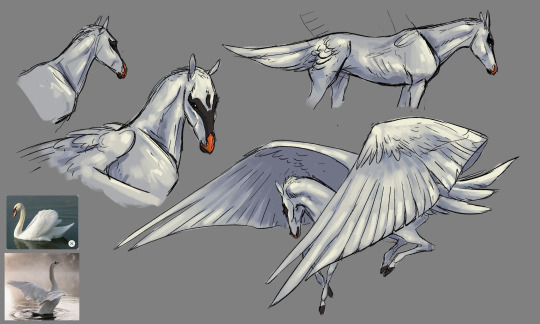Fan of DC comics, Star Wars, Marvel, Doctor Who, Lord of the Rings, Inheritance Cycle, The Raven Cycle. Also a writer.
Don't wanna be here? Send us removal request.
Photo

A Masked Broadwing….or is it a longwing? This peg’s classification is about as fickle as it’s personality. They tend to be difficult to handle. Pilots/breeders debate whether or not this pegasus is a broadwing or a longwing. There’s compelling evidence for either class
-
Discord | Patreon
17K notes
·
View notes
Text

also let me know if there’s any context e.g. have you had any culinary training etc…. im curious
1K notes
·
View notes
Text
dam…….. that website “you feel like shit” (it’s like a questionnaire / troubleshooting guide for when you feel like shit) really works………………….. im not even all the way thru it and i even half-assed a lot of the suggestions and i already feel loads better
160K notes
·
View notes
Text
FMA is fascinating because there aren't many works about what it means to be an atheist and a heretic to a god that you can not only see, but who has personally snatched body parts off of your living body and made fun of you for it.
26K notes
·
View notes
Note
It is an absolute TRAVESTY that BD-1 is never given the option of having one of his customizations be a poncho that matches cal's
UR SO RIGHT WHAT THE HELL

(donation doodles! // tip jar)
#this is the cutest thing I have ever seen#LOOK AT HIM HE HAS HIS OWN WIDDLE PONCHO#THEY MATCH#ITS ADORABLE
4K notes
·
View notes
Text

#Jedi Rebels Survivor?#jedi survivor and star wars rebels#ghost squadron survivor maybe#mantis x ghost rebels#idk how to combine the names#it's just a star wars game with rebels crew#bd-1 and chopper's chaos adventure#i feel like those two would get into trouble
106K notes
·
View notes
Text
First off, click here.
The wheel just assigned you one of the Worldwide Box Office Winners from the past 35 years. (No 2024 because we don't know that winner, yet.)
19K notes
·
View notes
Text
if thanos wanted to kill off half of the population because there weren’t enough resources……..but then snapped half of the vegetation and animals (according to the russos)……..then isn’t he back at square one……………and there aren’t enough resources for the population……………

215K notes
·
View notes
Text
They did that thing on TikTok again, except this one guy did the arrangement
(x)
36K notes
·
View notes
Text
theres too many pokemon games where you play as a kid whos full of life and full of potential. there needs to be a pokemon game where you play as a college dropout who lives in a shitty apartment
193K notes
·
View notes






